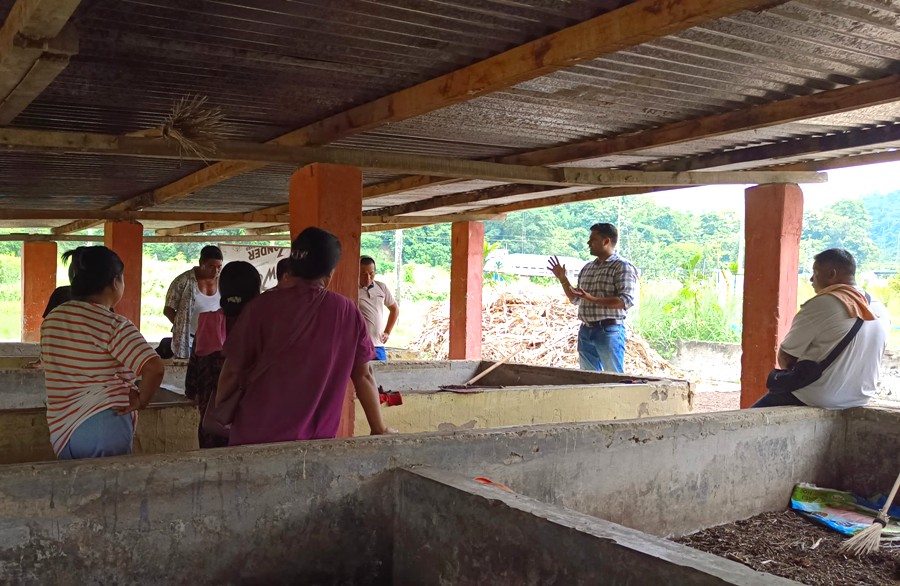FRIDAY, JULY 25, 2025
- Home
- Krishi Vigyan Kendra Dimapur holds training on vermicomposting, natural farming
Krishi Vigyan Kendra Dimapur holds training on vermicomposting, natural farming
Krishi Vigyan Kendra Dimapur organised hands-on training on vermicomposting and natural farming under ICAR to equip farmers with sustainable agriculture skills.
Published on Jul 22, 2025
By EMN
Share

DIMAPUR — A training programme on vermicomposting and natural farming was organised at Krishi Vigyan Kendra (KVK), Dimapur, on Tuesday under the Indian Council of Agricultural Research (ICAR) Research Complex for North Eastern Hill (NEH) Region, Nagaland Centre, for a focused group of farmers.
The programme was designed for 10 farmer trainees with the objective of providing hands-on learning experiences and promoting the adoption of sustainable farming practices, according to an update.
Dr. Phool Kumari, Senior Scientist and Head, KVK Dimapur, on the occasion shared insights into the ongoing extension and outreach activities of the KVK and emphasised the significance of such exposure visits in bridging the gap between theory and practice in agriculture.
Dr. Kumari highlighted how such platforms empower farmers through field-level implementation skills and technical knowledge.
Also read: Legal services clinic inaugurated in Losami village
DoNER minister holds review meeting with CM Rio on Viksit Nagaland
Dr. Ebibeni Ngullie delivered a session on animal husbandry practices, covering poultry, rabbitry, piggery, and dairy farming. She highlighted the importance of livestock-based farming systems in achieving sustainable rural livelihoods, particularly in the context of integrated farming.
A detailed technical session on vermicomposting and natural farming was conducted by Dr. Akshay Ujjwal. He explained the environmental and agronomic benefits of adopting natural farming, particularly in reducing dependency on chemical inputs. Dr. Ujjwal also discussed how farmers can begin natural farming practices using locally available bio-resources.
The session was followed by a hands-on demonstration, where trainees learnt the step-by-step process of preparing vermicompost, including the selection of worms, use of farm waste, and proper management of the composting unit. The group then visited the KVK demonstration farm to observe live examples of best practices in organic and natural farming.
Dr. Ujjwal also guided the farmers on how to adopt natural farming techniques in their own fields and elaborated on the economic, ecological, and long-term benefits of these sustainable practices.
As a tangible step to promote on-ground implementation, KVK Dimapur handed over two vermi pits to the trainees during the training. This initiative is expected to serve as a model unit for training and demonstration purposes.

